Aug 3, 2025
Protests Against 50% US Tariffs: Demonstrations Erupt Across Brazilian Cities
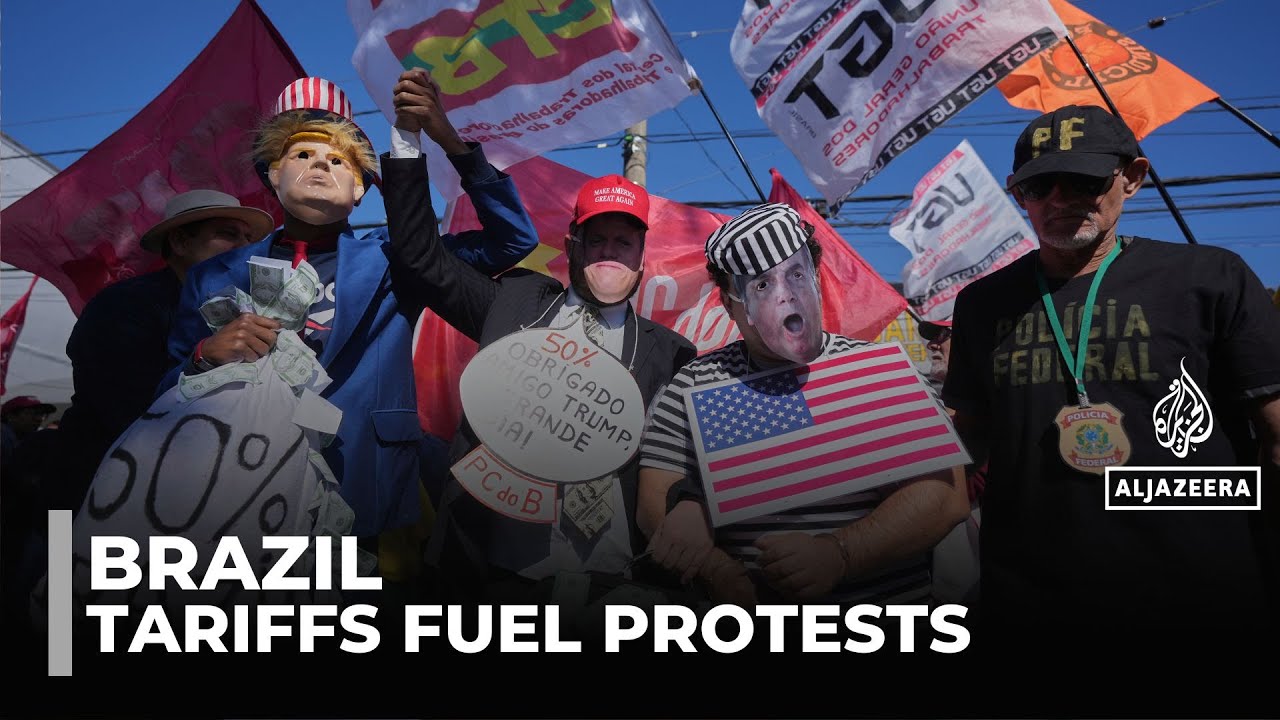
Protests have erupted across Brazil in response to the United States' imposition of a 50% tariff on Brazilian exports, a move widely seen as political retaliation linked to the ongoing legal trial of former Brazilian president Jair Bolsonaro. The tariffs, announced by former US President Donald Trump, have sparked widespread anger and demonstrations, with many Brazilians condemning what they describe as political blackmail and foreign interference in Brazil's judicial system.
Table of Contents
- Background: Political Turmoil and Trade Tensions
- The Tariff Impact and Economic Concerns
- Public Reaction: Nationwide Protests and Calls for Sovereignty
- Judiciary Stands Firm Amid Pressure
- Looking Ahead: Trade, Politics, and Sovereignty
Background: Political Turmoil and Trade Tensions
The unrest stems from Bolsonaro’s current trial at Brazil’s Supreme Court, where he faces allegations of plotting a coup attempt to remain in power following his defeat in the 2022 presidential election. Just days after Luiz Inácio Lula da Silva assumed office in 2023, Bolsonaro supporters stormed key government buildings, including the Congress, Supreme Court, and presidential palace, demanding military intervention to oust Lula.
In defense of Bolsonaro, Donald Trump has publicly declared the former president innocent, labeling the trial a “judicial witch hunt.” In an unprecedented move, Trump announced a sweeping 50% tariff on all Brazilian exports and demanded an immediate halt to Bolsonaro’s trial. This trade pressure is widely perceived as politically motivated rather than commercially justified.
The Tariff Impact and Economic Concerns
Following the initial announcement, a last-minute exemption spared around 700 Brazilian products from the tariffs, including orange juice—a significant export product for Brazil. Despite this, orange producers and other exporters remain uneasy, recognizing the tariffs as a form of political leverage rather than a business-driven decision.
"The tariffs have no commercial motive. They're political and personal. We can only hope common sense will prevail."
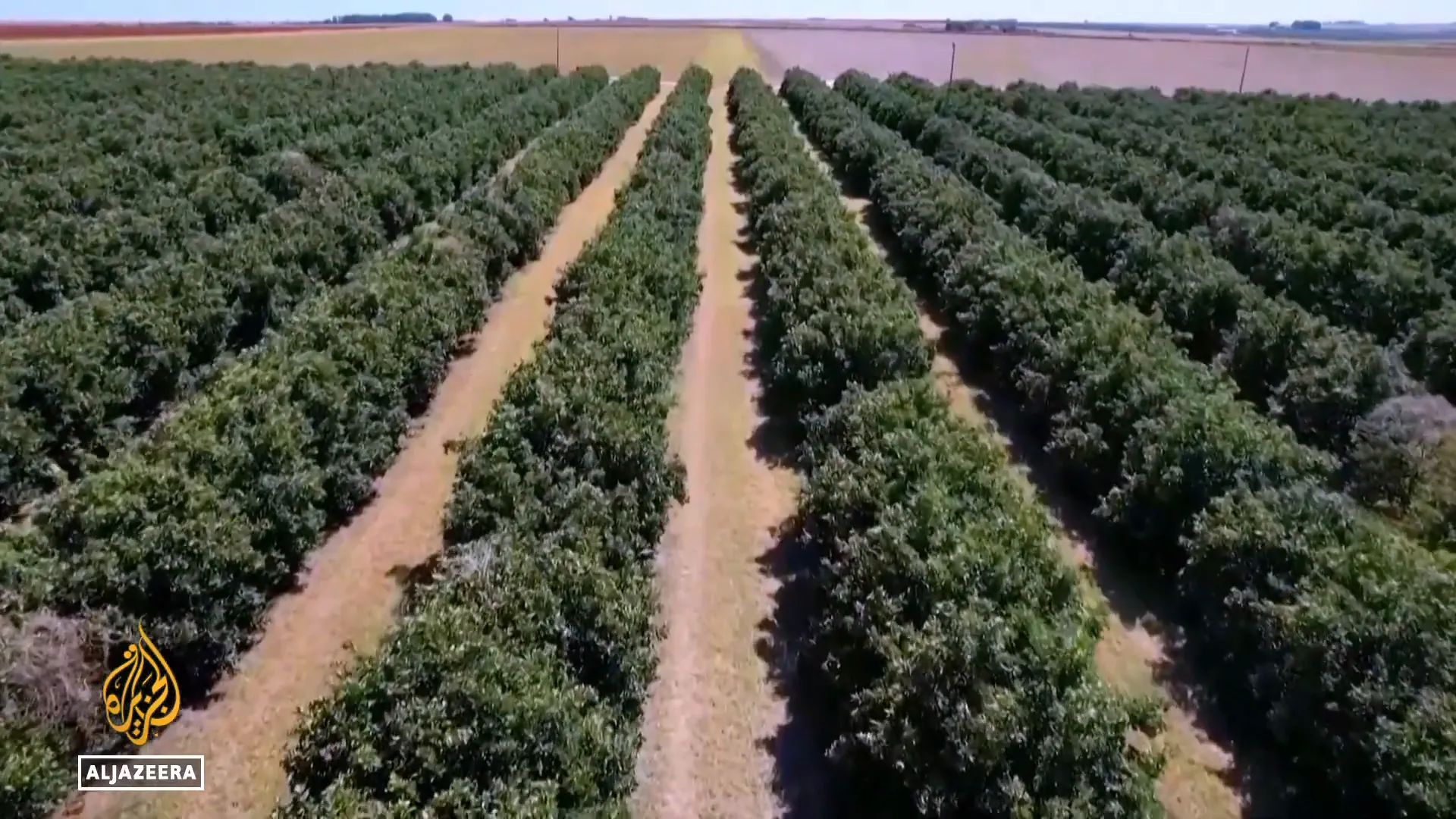
Many exporters whose products were not exempted are actively lobbying for additional exemptions before the tariffs take full effect next week. The uncertainty threatens to damage Brazil’s export economy and escalate tensions between the two countries.
Public Reaction: Nationwide Protests and Calls for Sovereignty
Polls indicate that 60% of Brazilians believe Trump’s actions are wrong, fueling protests in multiple cities that lasted well into the night. Demonstrators gathered in front of the US consulate in Rio de Janeiro, echoing a strong message:
- No foreign power should interfere with Brazil’s justice system.
- Brazil must defend its sovereignty and democratic institutions.
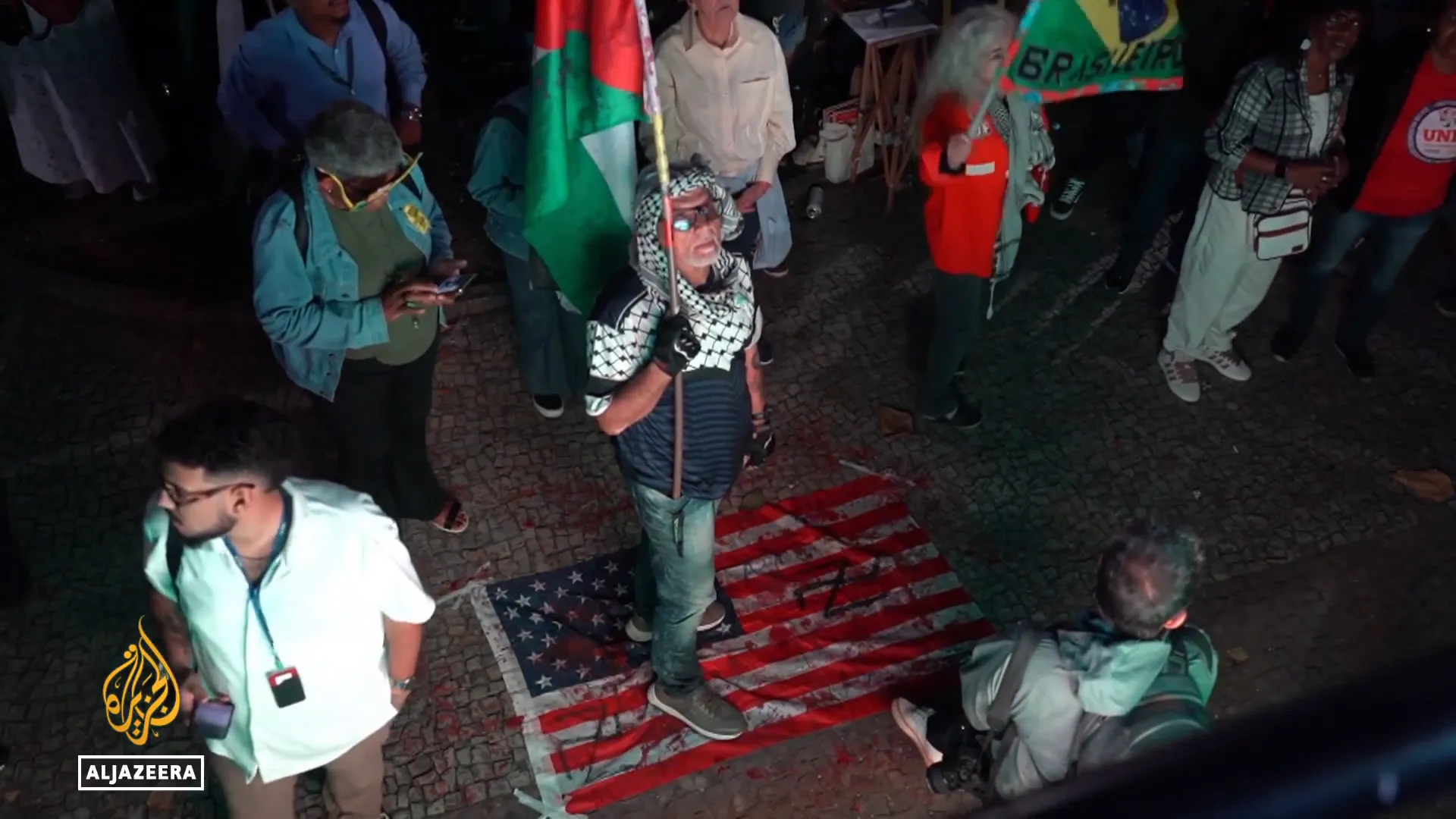
Many Brazilians expressed growing confidence in Lula’s leadership, whose popularity, once dwindling, is now on the rise amid these challenges. Protesters emphasized the importance of respecting Brazil’s democratic framework, which is founded on three independent powers: the executive, legislative, and judiciary.
"Brazil is under attack. We have to rally in favor of our sovereignty. We're a democracy with three independent powers. The US should respect that as Brazilians do."
Judiciary Stands Firm Amid Pressure
Supreme Court Justice Alejandro de Monaiges, who is leading Bolsonaro’s trial, has publicly vowed to resist the economic pressure exerted by the US, including sanctions under the Magnitsky Act aimed at him personally. He emphasized the judiciary’s independence and refusal to succumb to foreign hostile acts:
"The judiciary will not accept any attempt to subject the supreme court to the scrutiny of another state through hostile acts."
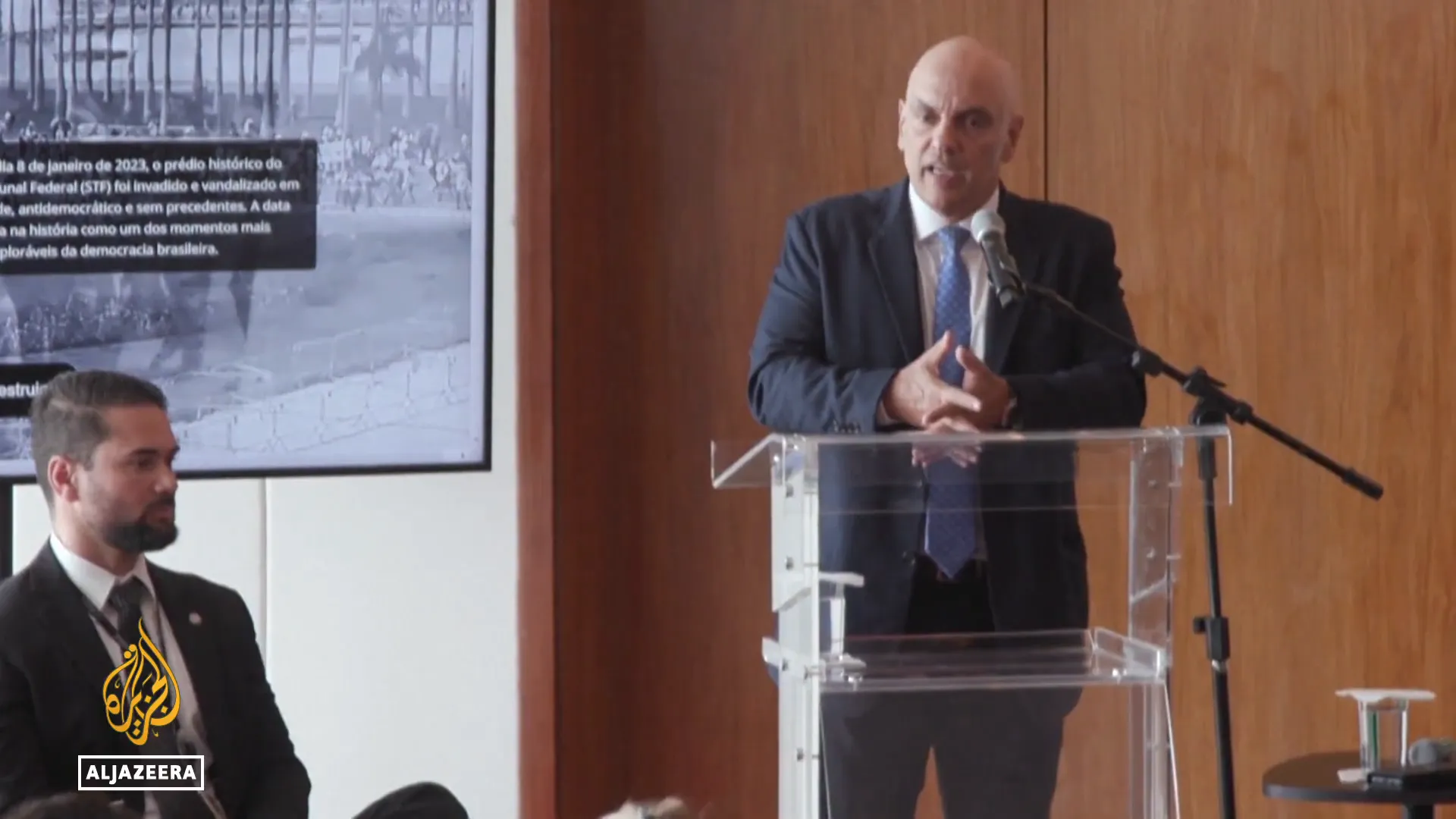
The trial is set to continue despite the tariffs and sanctions, reinforcing Brazil’s commitment to its legal process and sovereignty.
Looking Ahead: Trade, Politics, and Sovereignty
As the full 50% tariff is scheduled to take effect next week, exporters and political observers alike are watching closely. The Brazilian government and affected industries are pushing for further exemptions in hopes of mitigating economic damage. Meanwhile, the protests and public sentiment make it clear that many Brazilians view justice and sovereignty as non-negotiable, unwilling to allow trade disputes to dictate their nation’s judicial affairs.
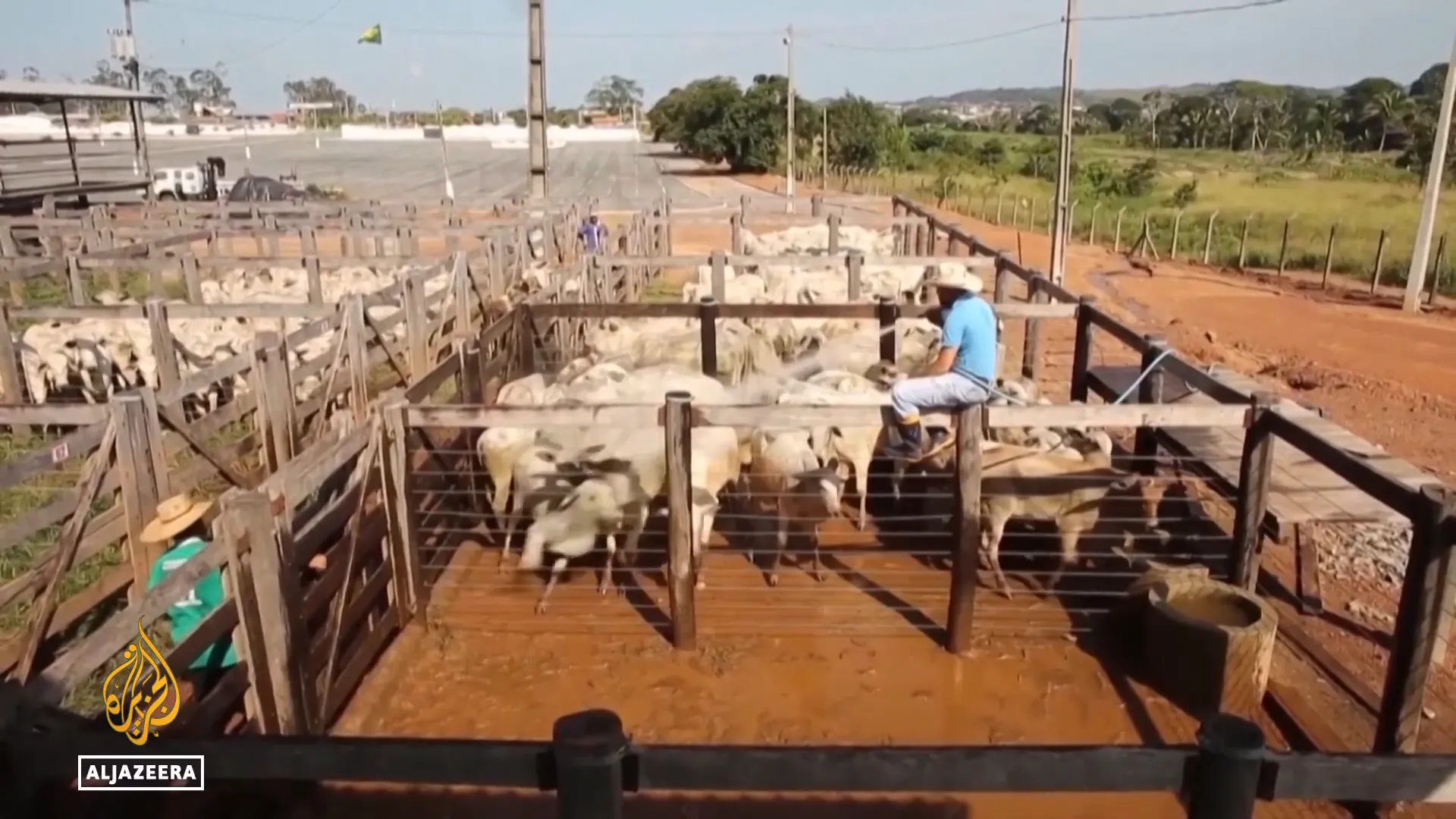
In this complex intersection of trade and politics, Brazil’s message is resolute:
"Justice will not be traded."
Frequently Asked Questions (FAQ)
What triggered the 50% US tariffs on Brazilian exports?
The tariffs were announced by former US President Donald Trump as a response to the trial of former Brazilian president Jair Bolsonaro, who is accused of plotting a coup. Trump has linked the tariffs to Bolsonaro's legal troubles, calling the trial a "judicial witch hunt."
Which Brazilian products were exempted from the tariffs?
About 700 products were spared from the tariffs, including orange juice. However, many other exporters remain concerned about the economic impact of the tariffs on their goods.
How have Brazilians reacted to the tariffs?
Protests have spread across several Brazilian cities, with demonstrators condemning what they see as political interference by the US in Brazil’s judicial system. Polls show that 60% of Brazilians believe Trump’s actions are wrong.
Will the Bolsonaro trial be affected by the tariffs?
Supreme Court Justice Alejandro de Monaiges, who is leading the trial, has stated that the judiciary will not be influenced by US economic pressure, and the trial will continue as planned.
What is the broader significance of this conflict?
The situation highlights the tension between trade policies and political agendas, raising concerns about sovereignty and the independence of judicial processes in Brazil amid international pressure.



